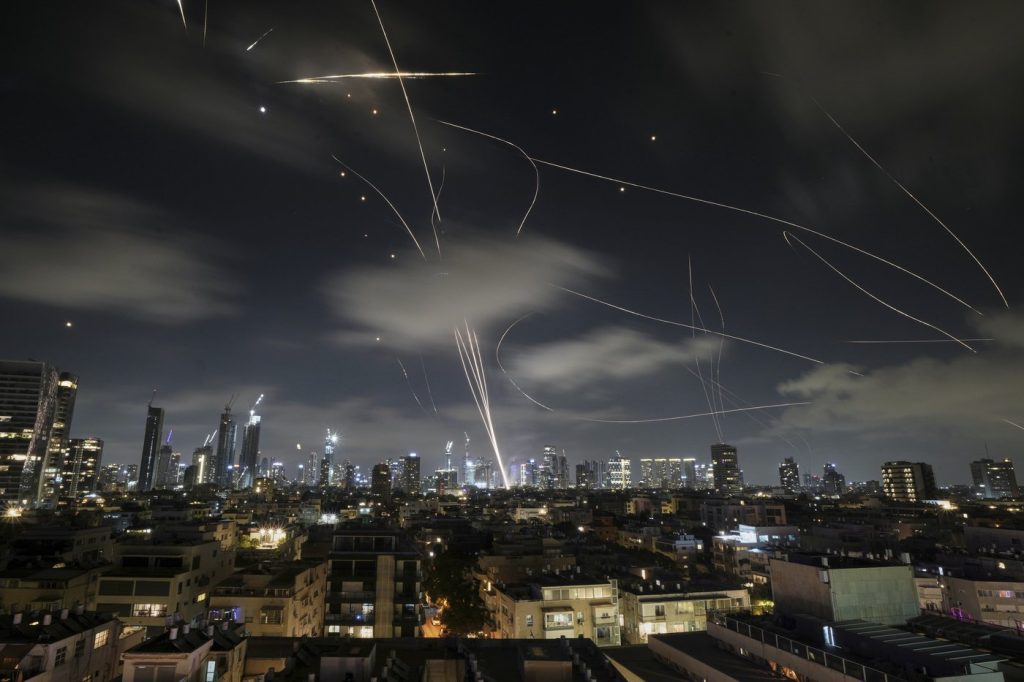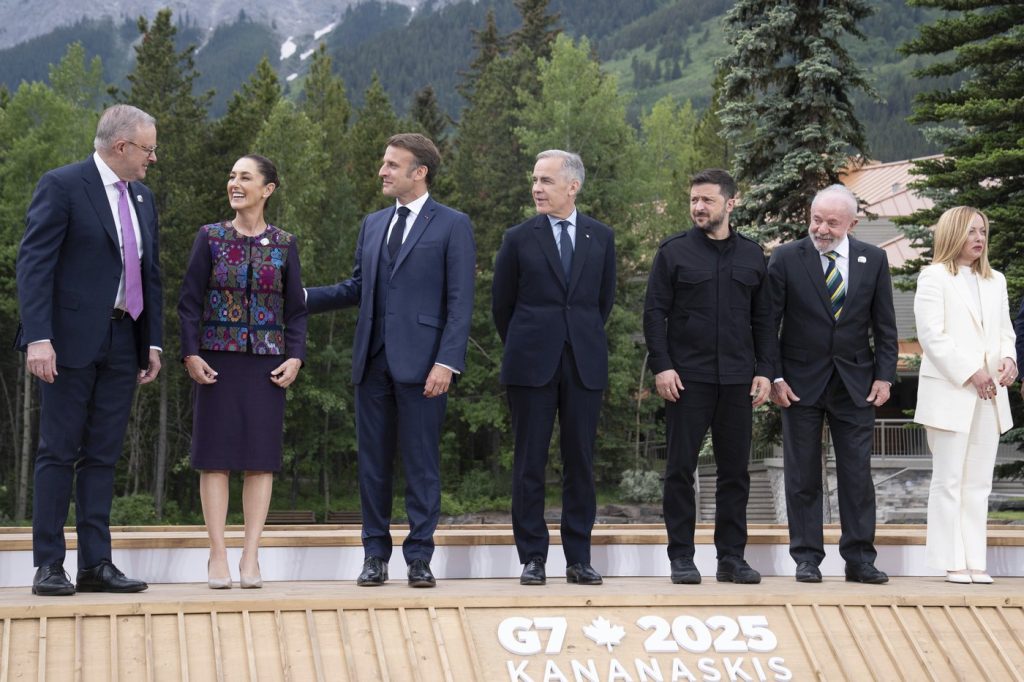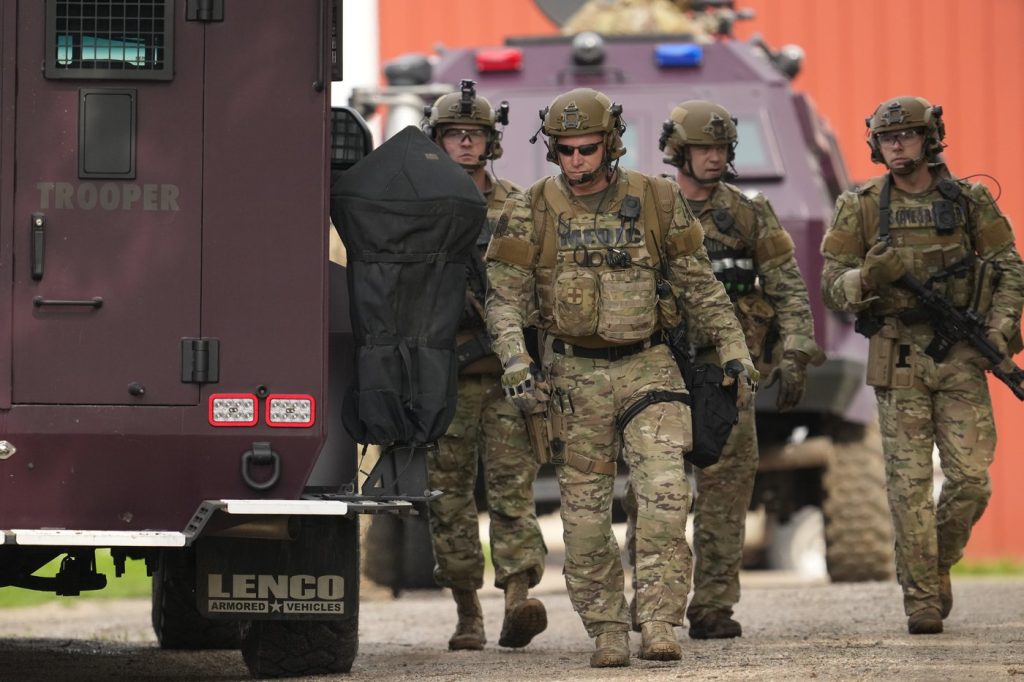DUBAI, United Arab Emirates (AP) – Intense Israeli airstrikes targeted Iran's capital, Tehran, early Wednesday, following U.S. President Donald Trump's demand for "unconditional surrender" during an escalating conflict. The U.S. has deployed warplanes to the Middle East amid the ongoing hostilities, which entered their sixth day as Tehran residents evacuated their homes.
Trump's remarks included a stark warning to Iranian Supreme Leader Ayatollah Ali Khamenei, claiming that the U.S. knows his location but has no immediate plans to target him. This statement has generated uncertainty regarding the U.S. position in the conflict, as Israel's air campaign specifically aims at Iran's military and nuclear capabilities. The Israeli strikes have reportedly resulted in the deaths of at least 224 individuals in Iran, prompting a retaliation from Tehran, which launched approximately 400 missiles and numerous drones at Israel, resulting in 24 fatalities there.
The current conflict is interconnected with Israel's ongoing operations in the Gaza Strip, which have seen near-daily violence. Early Wednesday, numerous explosions were reported in Tehran, a pattern of intense aerial attacks that began the previous Friday. While Iranian authorities have remained silent about these recent strikes, Israeli sources indicated that one assault targeted the eastern neighborhood of Hakimiyeh, where the Islamic Revolutionary Guard Corps operates an academy.
In another escalation, Israel has asserted that it succeeded in killing Iranian General Ali Shadmani, a critical figure within Iran's military hierarchy, indicating its focus on disrupting Iranian command structures. Shadmani was appointed recently to take over after his predecessor was killed in an Israeli airstrike.
On the diplomatic front, President Trump cut short his attendance at the G7 summit in Canada to address the escalating situation between Israel and Iran. He stated that the U.S. seeks more than just a ceasefire and hinted at expectations for Iran to completely surrender. Although he expressed a reluctance to negotiate, Trump mentioned potential diplomatic discussions involving Vice President JD Vance and special envoy Steve Witkoff.
The U.S. is taking precautionary measures by repositioning military aircraft and naval vessels around the Middle East to protect Israel and counter Iranian threats against American military installations. Despite this military readiness, satellite images suggested that no vessels were present at the U.S. Navy's 5th Fleet base in Bahrain, highlighting a common naval safety tactic during conflicts.
Iran’s military leadership pledged further retaliation against Israel, with General Abdul Rahim Mousavi warning that previous operations merely served as warnings, hinting at impending punitive actions. As new missile attacks were reported, Israel's defense system reportedly intercepted most of them, with minimal immediate damage reported.
On the home front in Tehran, Trump urged civilians to evacuate the city to ensure their safety, echoing earlier Israeli calls for significant urban evacuations. The capital city, home to around 10 million residents, has seen many fleeing since hostilities first escalated. Shops, including the Grand Bazaar, closed as residents sought safety, leading to heavy traffic jams on routes out of the city.
Amid these developments, Iranian authorities have begun restricting public access to the internet and telephone services, citing national security concerns. This move has come under scrutiny, as disruptions parallel those seen during past nationwide protests. Reports indicate that Iran has limited international communications while maintaining local internet access, aligning with the government's control measures typical in crisis situations.
The International Atomic Energy Agency (IAEA) has reported damage to Iran's Natanz enrichment site due to Israeli strikes, emphasizing that these attacks have disrupted Iran's uranium enrichment efforts. Satellite imagery reveals impacts on essential parts of the facility where a significant portion of Iran's enrichment activity occurs underground, leading to concerns about potential nuclear weapon capabilities.
In summary, the conflict between Israel and Iran has escalated dramatically, characterized by severe military exchanges and rising casualties on both sides. With diplomatic avenues appearing complex, the potential for further escalation remains high as both governments engage in a high-stakes confrontation.












